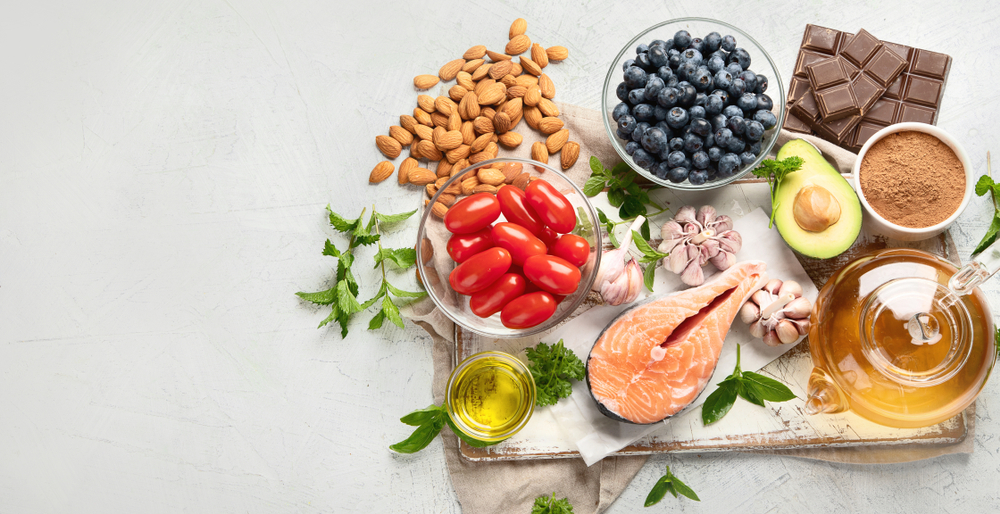You may see these buzzy ‘brain food’ claims on internet health publications and social media feeds.
But can some foods or diets genuinely help or prevent dementia?
It is a general idea that what we eat affects the aging brain’s ability to think and remember.
Let’s find the answer to this.
Table of Contents
What is Dementia?
Dementia is a cognitive decline that your brain suffers; thinking, remembering, and reasoning — to such an extent that it interferes with a person’s daily life and activities.
Some people with dementia cannot control their emotions, and their personalities may change.
What are the Risk Factors of Dementia?
Age
As you get older, you’re more likely to get dementia and Alzheimer’s disease.
Genetics
If a family member has dementia, you are more likely to get it yourself. Additionally, possessing specific gene variants, such as apolipoprotein E 4 (ApoE4), raises your chance of Alzheimer’s disease.
Education
People with a lower level of education are more likely to get dementia.
High Cardiovascular Disease Risk
The same factors that affect your heart health, such as high blood pressure and heart disease, also raise your chance of dementia.
Head Trauma
If you have a brain injury that causes you to lose consciousness, you’re more likely to acquire dementia.
Alcohol Abuse
People who have an alcohol use disorder are more prone to have cognitive problems and develop dementia.
Sleep Issues
Older persons who have had their sleep disrupted on a regular basis more commonly develop dementia.
Foods to Prevent Dementia: A List
Here are some of the foods and food groups that may fight memory loss. Get yourself acquainted with some of these foods to prevent dementia in the long run:
Leafy Green Vegetables
One major dietary modification you may make is to ‘raise your plant game’.
Kale, collard greens, spinach, and Swiss chard are just some leafy greens high in essential B vitamins like folate and B9 that can help reduce depression, while also boosting cognition.
Instead of just eating leafy greens in salads, add these powerhouse vegetables to soups, stews, and chilis; you can also puree them and add to sauces, pesto, and hummus.
Researchers scanned the brains of almost 200 patients who were divided into three diet groups. They discovered that those who ate a “green” mediterranean diet, which included Mankai (a nutrient-dense green plant), green tea, and walnuts, had the slowest rate of age-related brain atrophy after 18 months.
Colorful Fruits and Vegetables
The more colorful the contents on your plate, the better the food usually is for your brain.
So, add more fresh fruits and vegetables to your daily diet, and see the miracle for yourself.
Berries
Anthocyanin, a flavonoid found in raspberries, blueberries, blackberries, and cherries, slows the advancement of brain damage caused by free radicals.
These and other berries are also high in antioxidants and vitamins that aid in the reduction of inflammation and the maintenance of excellent brain function.
Cruciferous Vegetables
Broccoli, cauliflower, brussels sprouts, and other cruciferous vegetables are strong in B vitamins and carotenoids.
These Can help lower homocysteine levels, which relates to cognitive decline, brain atrophy, and dementia.
Incorporate cruciferous veggies into smoothies, soups, and condiments, or sauté them in garlic and olive oil.
Nuts
Healthy fats, magnesium, vitamin E, and B vitamins are abundant in pecans, almonds, walnuts, cashews, and peanuts.
All of these enhance good cognition and fight off dementia symptoms.
Omega-3 Fatty Acids
Foods high in omega-3 fatty acids with DHA, such as olive oil, flax seeds, and fatty fish like tuna, salmon, and mackerel, are examples of foods high in DHA.

Make a conscious effort to ingest more omega-3 fatty acids, or ask your doctor to prescribe DHA supplements that are both safe and effective.
Olive Oil
It’s delicious on bread, salad, pasta, cooked greens, and any number of other things.
It improves brain function over the long term and protects against dementia.
Read more about the benefits of olive oil.
Beans
Beans should be a regular part of your diet if they aren’t already.
They’re high in fiber and protein and low in calories and fat, so they’ll keep your mind bright.
To help minimize the risk of dementia, the researchers recommend eating beans three times a week.
Seeds
Sunflower seeds, flax seeds, and pumpkin seeds are all high in antioxidants and nutrients including vitamin E, zinc, omega-3 fatty acids, and choline, all of which help to prevent cognitive decline.
To benefit from enhanced brain health, eat these seeds alone, sprinkle them on salads, or slip them into desserts like pudding and muffins.
Read more about the benefits of vitamin E.
Avocadoes
Avocados provide healthful lipids that provide clean energy without raising blood sugar levels.
Avocados, like olive oil, are high in healthful monounsaturated fats.
Alzheimer’s disease and dementia are less frequent in people who consume more monounsaturated fats (and omega-6 polyunsaturated fats).
In a salad with lush green veggies, beans, grilled chicken, and a handful of berries, toss in some sliced avocado. You’ll enjoy a delectable meal that will also help to protect your brain.
Foods That Are Risk Factors for Dementia
Many foods such as red and processed meats, refined grains, sweets, and desserts, have been identified as risk factors for dementia and Alzheimer’s disease.
Excessive alcohol consumption, saturated fatty acids, and high-calorie diets are all risk factors for Alzheimer’s disease.
If you or a loved one thinks you or someone you know is at risk for Alzheimer’s disease and dementia, work with your doctor to build a healthier diet and nutrition plan that will dramatically minimize the risk. Consult with a well-known neurosurgeon via Healthwire.pk or call at (042) 32500989.
